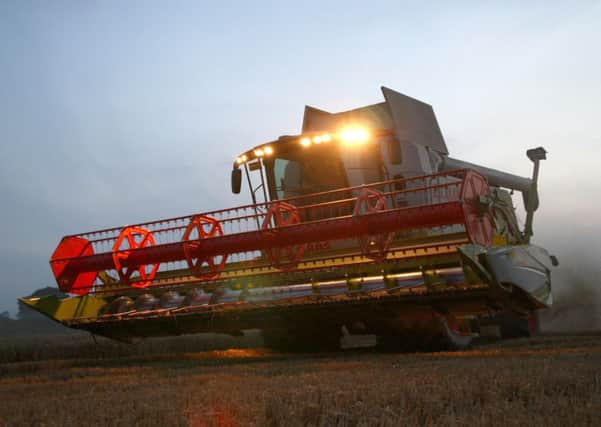Farming Matters: Driverless tractors


Tractors, combine harvesters and other machines are fitted with GPS (Global Positioning System) to enable greater accuracy and therefore more economical returns.
But according to recent news reports this technology may now lead to driverless machines.
Advertisement
Hide AdAdvertisement
Hide AdGPS-based applications in precision farming are used for farm planning, field mapping, soil sampling, tractor guidance, crop scouting, variable rate applications, and yield mapping.
GPS allows farmers to work during low visibility field conditions such as rain, dust, fog, and darkness.
It also leads to more precise application of pesticides, herbicides, and fertilisers, and better control of the dispersion of those chemicals, thus reducing expenses, producing a higher yield, and creating a more environmentally friendly farm.
Always keen to keep one step ahead and continually progress, manufacturers are reported to be working on the technology to allow one man to control two tractors, and monitor tractors with no cab at all from a central station.
Whether this is good news or not depends on your viewpoint.
Advertisement
Hide AdAdvertisement
Hide AdMore and more technology often means the loss of human jobs.
Farms today have nothing like the staff they had 100 years ago.
But with a growing global population predicted to reach nine billion by 2050 perhaps it is only by embracing new technology that farmers of the future will manange to produce the 70% increase in food that experts believe we will need.